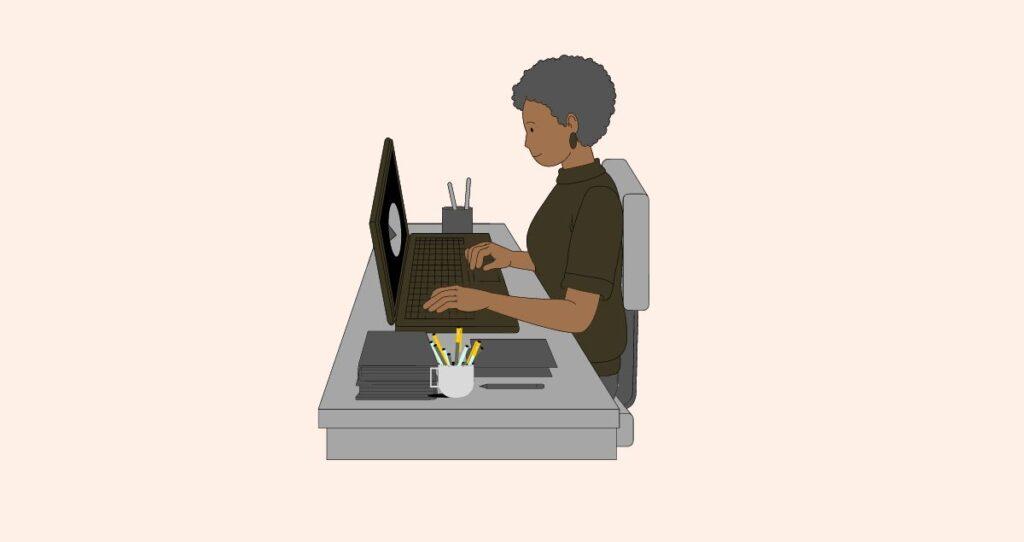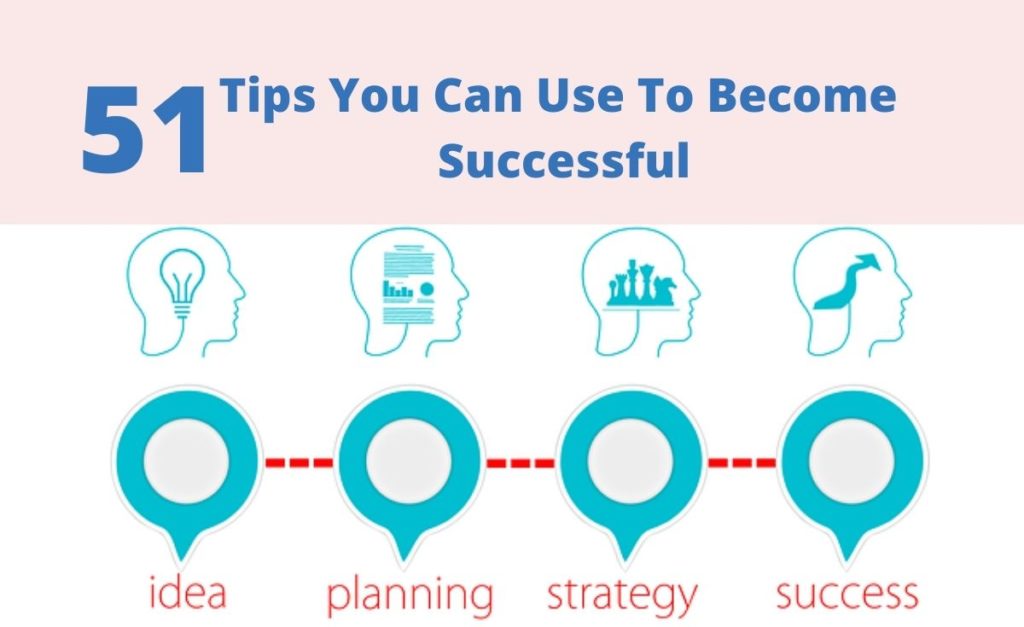Are you tired of going on job interviews and never receiving an offer? You’re not alone. Job interviews can be nerve-racking and overwhelming. However, with proper preparation and job interview strategies, you can easily ace a job interview and land your dream job. In this article, I will show you how to impress your hiring manager and nail your next job interview in 7 simple steps.
From researching the company, reviewing your skills, experience, and qualifications to showing professionalism and following up after the interview, you’ll learn everything you need to know to stand out. I will also review nine common interview questions and how to answer them accurately. Whether you are a recent graduate or a seasoned professional, keep reading to discover the best secrets to acing an interview that always works.
Without further ado, let’s get started.
1. Research the company and position
One of the essential steps to ace an interview is to research the company and position you’re applying for. Honestly, you cannot easily pass an interview for a company you know nothing about. Researching the company can help you tailor your responses to align with the company’s goals, culture, and expectations.
The best place to start when learning about the company is its website. Review the company’s website, mission statement, and recent news. You can also check the company’s social media profiles and review its missions, which are usually provided in the job descriptions.
Also, don’t forget to learn about the position you are interviewing for. Again, to ace an interview, you must first understand the job requirements and expectations. So, review the job description and highlight the key requirements and responsibilities.
If possible, try to find out who your supervisor will be and their management style. You can also research the skills and experiences of other successful employees in the same position. By doing this research, you can better understand what the company is looking for and position yourself as an ideal candidate.
You might also like 17 things to do after losing your job
2. Practice common interview questions and answers
Once you have done your homework on the company and the position you are interviewing for, the next step to ace an interview is to prepare for the actual interview. One of the most effective ways to do this is by practicing common interview questions and answers. This will help you identify gaps in your knowledge or experience and develop compelling answers showcasing your strengths and abilities.
Some of the most common interview questions include:
- Tell me about yourself.
- What are your strengths and weaknesses?
- Why do you want to work for this company?
- What experiences do you have that make you a good fit for this position?
- Where do you see yourself in 5 years?
- How do you manage stress?
By practicing your responses to these questions and many more, you can refine and deliver your answers confidently.
I have included a list of the nine most common interview questions and their answers at the bottom of this article. Be sure to check them out.
3. Highlight your relevant skills and experience
If you are preparing for an interview, it is evident that you have an updated resume and cover letter. Most hiring managers use your resume to reference your experience, certification, and skills. So, make sure you review both your resume and cover letter by heart before the interview.
One of the most important things you can do to pass the interview is to showcase your relevant skills and experience. This means being able to articulate your strengths and accomplishments in a way that is relevant to the job you are interviewing for. You might be asked to describe a situation in your experience where you had to solve a specific problem related to the job you are interviewing for.
For example, if you are interviewing for an IT management job, you might be asked to describe a situation in which your client’s system failed and the specific steps to take to resolve the issue.
By highlighting your relevant skills and experience, you can demonstrate to the interviewer that you are the right fit for the job. This can set you apart from other candidates who may not have the same level of experience or expertise.
You might also like to know how to secure your financial future after landing a job.
4. Dress professionally and arrive early
An effective strategy to ace an interview, usually overlooked by many candidates, is the dress code and showing up early. It is important to remember that the interview does not start after you enter the room. Instead, the interview starts way before that time. For example, when you are communicating with your hiring manager about the job, scheduling an interview, etc, the manager also uses that information to evaluate your response time and communication skills.
This also applies to your appearance for the interview and when you show up. Your appearance and punctuality can speak volumes about your professionalism and attention to detail. Showing up late or lacking proper attire will send a negative impression, negatively impacting the interview outcome. A rule of thumb is always to arrive at least 15 minutes early. This time allows you to check in, collect your thoughts, and calm your nerves before the interview begins.
When choosing your outfit for the interview, it’s best to be cautious and dress conservatively. Opt for professional attire that is appropriate for the company culture and industry. A well-fitting suit, clean and polished shoes, and minimal accessories are always a safe choice.
You might also like How to tell your boss you are quitting on short notice.
5. Always remember the 10 seconds rule and make first impression
Did you know some managers only need the first 10 seconds to decide? That is right. Remember that first impressions are among the most essential strategies in acing interviews. Sometimes, it can count even for more than 50% of the interview outcomes.
The first step to making a good impression is to dress professionally and arrive early. Your appearance and punctuality are crucial elements of creating a strong first impression. By dressing professionally, you convey that you take the interview seriously and are committed to presenting yourself in the best possible light. Arriving early demonstrates that you respect the interviewer’s time and are eager to learn more about the job opportunity.
Also, watch your body language and demeanor within the first seconds of meeting the interviewers. Try to have a firm handshake, keep direct eye contact, and have a positive and enthusiastic greeting while maintaining professionalism. Always remember that some hiring managers are more interested in your behavior than your experience. In order words, they are looking for a likable person to spend a day with. So, don’t leave small details to chance.
6. Ask thoughtful questions
In addition to projecting a professional appearance and accurately answering interview questions, asking thoughtful questions is an excellent way to stand out during an interview. Again, it is essential to ace an interview for a job that fits your career goals and dreams. It would not make sense to pass an interview only to hate the job a few months later.
While the interviewer is evaluating whether you’re a good fit for the position, it’s also an opportunity for you to assess if the company and role align with your values and goals. That is why asking questions during an interview shows that you care and are willing to learn more, which is an excellent step in improving your chances of landing the job.
One key to asking thoughtful questions is researching the job and company ahead of time. Review the job description, company website, and any recent news articles to better understand the company’s mission, values, and recent developments. This will help you tailor your questions to the company’s specific areas and role.
Another tip is to ask open-ended questions that show your interest and curiosity. For example, instead of asking a closed-ended question like “What are the hours for this position?” try asking, “Can you describe what a typical day looks like in this role?” This allows the interviewer to provide more detailed information instead of telling you 8-5.
You might also like to know the best tips for negotiating a salary after a job offer.
7. Follow-up after the interview
Acing the interview does not end with the interview questions. After the interview, following up with a thank-you note to thank the interviewer for their time and express your continued interest in the company and position is crucial. By doing so, you demonstrate your commitment and enthusiasm, which can increase your chances of landing the job. You must submit your thank you email within 24 to 48 hours of the interview.
How do you stand out in a job interview?
To stand out and ace an interview, you need to be prepared. Research the company, review your resume, and find a way to connect your existing skills, certifications, and experience to the job you are applying for. Additionally, practice the interview, go through as many common interview questions as possible, dress up professionally, and show up on time.
Another tip to help you ace an interview and stand out is to showcase your personality and enthusiasm for the position. Be confident and authentic, and show your genuine interest in the job. Remember that the interviewer assesses your skills, experience, and fit with the company culture.
After the interview, following up with a thank-you letter within 24 to 48 hours is crucial. This will show a continuous interest in the job and company, which can quickly help you land the job.
How do I introduce myself in an interview?
When interviewing for your dream job, first impressions are everything. That’s why it’s essential to introduce yourself in a way that sets the tone for the rest of the interview. Begin by offering a firm handshake and a smile and making eye contact with the interviewer.
When answering the ” Tell us about yourself” question, keep your answers brief and to the point. Start by stating your name and current or most recent position, then summarize your experience and how it relates to the job you’re interviewing for. Avoid going into too much detail or oversharing personal information.
Preparing an elevator pitch, a 30-second summary of your professional experience, accomplishments, and goals, is also a good idea. This helps convey your value to the potential employer and ensures you don’t miss any critical points.
9 Common interview questions and answers
If you are ready to prepare for an interview, the following most commonly asked interview questions and answers will be your starting point.
1. What is the best answer to “tell me about yourself”?
When interviewing for a job, you’ll likely be asked the broad yet daunting question, “Tell me about yourself.” It’s easy to stumble over this question and either ramble on about irrelevant details or go too deep into your personal life. However, you can follow a simple formula to give a concise and impressive answer.
First, start with a brief introduction of yourself and your background. Then, transition into highlighting relevant skills and experiences that make you an excellent fit for the job. Finally, tie it all together by expressing your enthusiasm for the position and how it aligns with your career goals.
2. “Why should we hire you” answers?
One of the most critical questions you’ll be asked during an interview is, “Why should we hire you?” This question lets you showcase your unique skills and demonstrate why you’re the perfect candidate. Here are some tips to help you craft the perfect answer and ace an interview.
Start by doing your research about the job and the company. Use your findings to tailor your answer to the company’s needs and demonstrate how you can contribute to their goals. For instance, if the company values innovation, highlight your experience with innovative solutions you’ve implemented in previous roles.
Secondly, focus on your hard and soft skills, highlighting the most relevant ones for the position. Use specific examples to demonstrate how you’ve utilized these skills in past roles and how to apply them to your current job.
Finally, express your enthusiasm for the role and the company. Show that you’re excited about working with them and contributing to their success. Doing so will showcase your qualifications and demonstrate your passion for the job.
3. Why do you want this position?
When asked, “Why do you want this position?” during an interview, your response must be thoughtful and intentional. This question gives the interviewer insight into your motivations for applying for the job and the specific reasons you decided to apply for the role in the company.
To answer this question successfully, you need to do your research beforehand and understand the company’s values, mission, and goals. This will enable you to articulate why you’re the perfect candidate for the job and align your personal and company goals. Always focus on what you can do for the company and the value you will create.
Additionally, you must connect your unique career goal with the position you are applying for. Qualifications are insufficient to justify why you need to do the job. Other candidates applied for the same job. So, what is the reason you have decided to apply? Be honest with how you answer the question and focus on the value you will provide and how the job aligns with your career aspirations.
4. Why are you a good fit for this position?
One question present in almost every interview is, “Why are you a good fit for this position?” This question lets you showcase your qualifications and experience and demonstrate how they align with the company’s goals and needs. You must thoroughly understand the role, responsibilities, company culture and values to answer this question well.
When preparing your answer, consider the specific skills and experiences you have that are relevant to the position. Think about how your past successes and accomplishments demonstrate your ability to excel in this new role. Additionally, you can highlight your passion and enthusiasm for the job and the company. Finally, explain why you believe this position is the perfect fit for you.
4. How do you handle stress and pressure?
You may be asked how you handle stress and pressure during an interview. The interviewer wants to know how well you can hold a fast-paced and demanding environment and how you react to unexpected challenges. This question demonstrates your ability to stay calm, collected, and focused even under pressure.
So, how do you ace an interview by answering this question correctly?
To answer this question effectively, you should be specific and provide examples. Think about a time when you faced a challenging situation at work, and describe how you dealt with it. You can talk about how you organized your tasks, prioritized your responsibilities, or sought help from others to manage the workload. You can also mention any coping strategies you use to stay calm and focused, such as practicing mindfulness and creating a healthy work environment for others.
The key is to show that you can handle pressure without becoming overwhelmed or letting it affect your performance.
5. What do you consider your strength?
To ace an interview and land your dream job, knowing your strengths and communicating them effectively is essential. When an interviewer asks you to describe your strengths, they aren’t just looking for a laundry list of your skills and abilities. They want to know how your unique strengths can benefit their company.
So, take some time to reflect on your strengths before your interview. Consider your previous work experience, education, and any feedback you’ve received from colleagues or supervisors. Consider when you’ve excelled in your work and what qualities contributed to that success.
During the interview, provide specific examples of how your strengths have helped you succeed in your career. Don’t just list them off – explain how they’ve made you an effective leader, problem-solver, or team player. For example, don’t just say, “communication skills.” Instead, describe how you used your communication skills to solve a major problem or a task in your previous roles.
6. Where do you see yourself in 5 years?
Another important question during a job interview is, “Where do you see yourself in five years?” This question can seem tricky, but it’s an opportunity for you to showcase your ambition and potential within the company. By reflecting on your unique abilities and career goals, you can communicate how you envision yourself progressing and contributing to the company’s growth over the next five years.
It’s important to note that your answer should be aligned with the company’s goals and values. Show the interviewer that you have done your research on the company and that you are committed to its vision for the future. For example, if the company is focused on expanding its market share, you can talk about how you see yourself taking on a leadership role in the sales department and driving that growth.
Demonstrating a clear plan for your company’s future will show the interviewer that you’re not just looking for any job. Instead, you’re looking for a job where you can truly excel and contribute to the company’s success.
7. What is your greatest weakness?
During an interview, it’s almost guaranteed that you will be asked about your weaknesses. This can be tricky to answer, as you don’t want to come across as incompetent or unqualified for the job. However, it’s important to remember that no one is perfect, and everyone has areas where they can improve.
How can you structure your answers to help ace an interview if asked this question?
When answering this question, it’s essential to focus on a weakness that is not directly related to the job requirements. For example, if you’re applying for a job that requires strong communication skills, you wouldn’t want to mention that public speaking makes you nervous. Instead, think about areas where you can improve that aren’t essential for the job, such as time management or organization.
Once you’ve identified a weakness, explain how you are working to improve in that area. This shows the interviewer that you are proactive and committed to self-improvement. For example, you could mention that you’ve started using a time management app to help you stay on track with deadlines.
8. What are your salary expectations?
During a job interview, the topic of salary expectations can seem daunting. It’s critical to approach this question confidently and clearly understand your worth. Before the interview, research industry standards and salary ranges for positions similar to the one you’re applying for. This will help you develop a realistic range that reflects your qualifications.
When asked about your salary expectations, it’s best to provide a range rather than a specific number. For example, it would be best to say between $90,000 and $120,000/year instead of $100,000. This allows for negotiation and flexibility. Be sure to explain how you arrived at your range to demonstrate that you’ve done your homework.
Remember that salary isn’t the only factor to consider when accepting a job offer. Consider the company culture, opportunities for growth, and the potential for additional benefits or perks.
9. What is your biggest accomplishment?
Almost every interviewer will ask you about your most significant accomplishments. This question allows the interviewer to understand your strengths and achievements better. Choosing an accomplishment that aligns with the job you’re applying for and highlights skills relevant to the position is essential.
So, how do you correctly answer this question and ace the interview?
To prepare for this question, brainstorm a list of accomplishments from previous jobs, academic projects, or personal experiences. Choose an achievement that you’re proud of and can speak about confidently. Use specific examples and quantify your accomplishments with numbers or statistics.
When discussing your accomplishments, highlight your ability to solve problems, work well under pressure, or collaborate. Talk about your process to achieve your goal and any challenges you faced.
The bottom line
In today’s job market, it is often hard to land an interview, let alone acing it or landing a job. But, if you follow these seven strategies, you’ll be well-equipped to impress your hiring manager and stand out from the competition. Research the company beforehand, practice your responses, highlight relevant skills, and make a great first impression. And don’t forget the importance of following up after the interview. Always show confidence in every step of the interview process.









